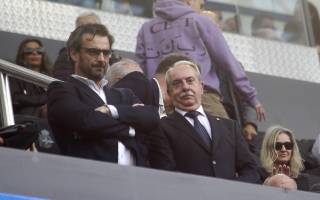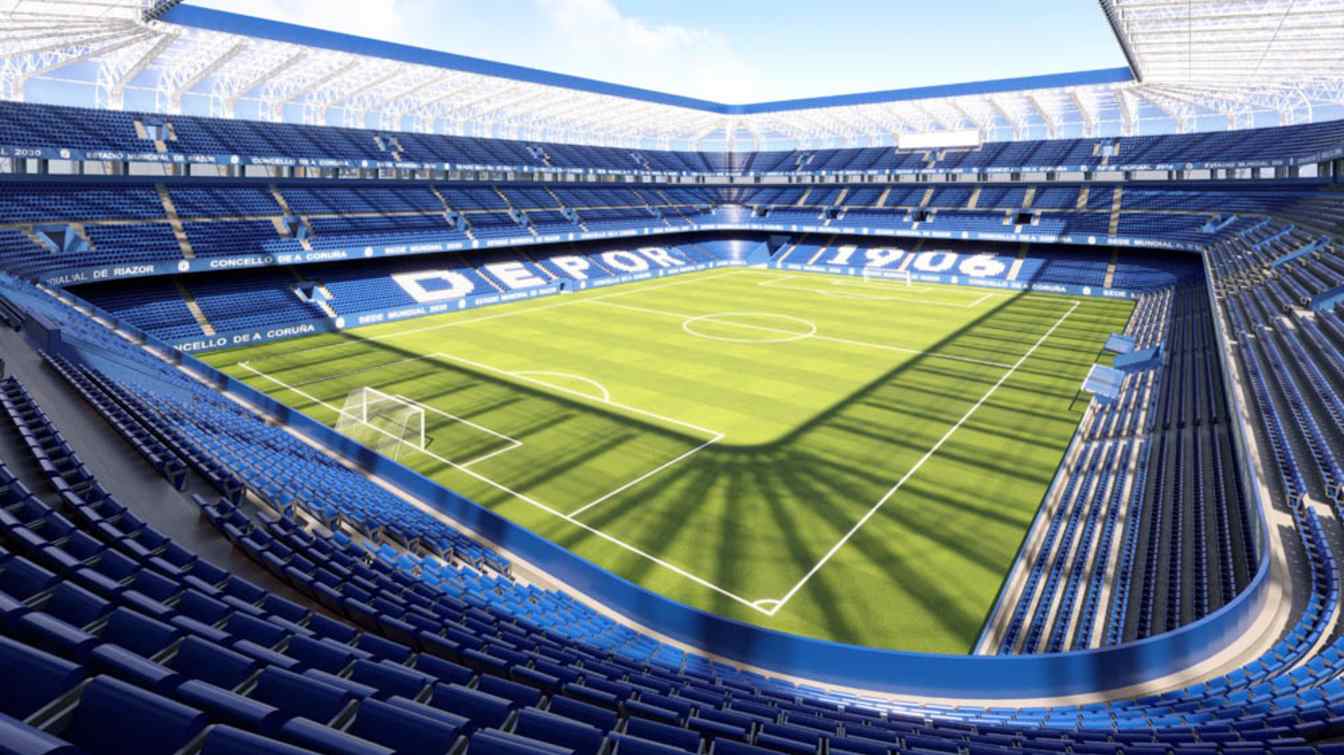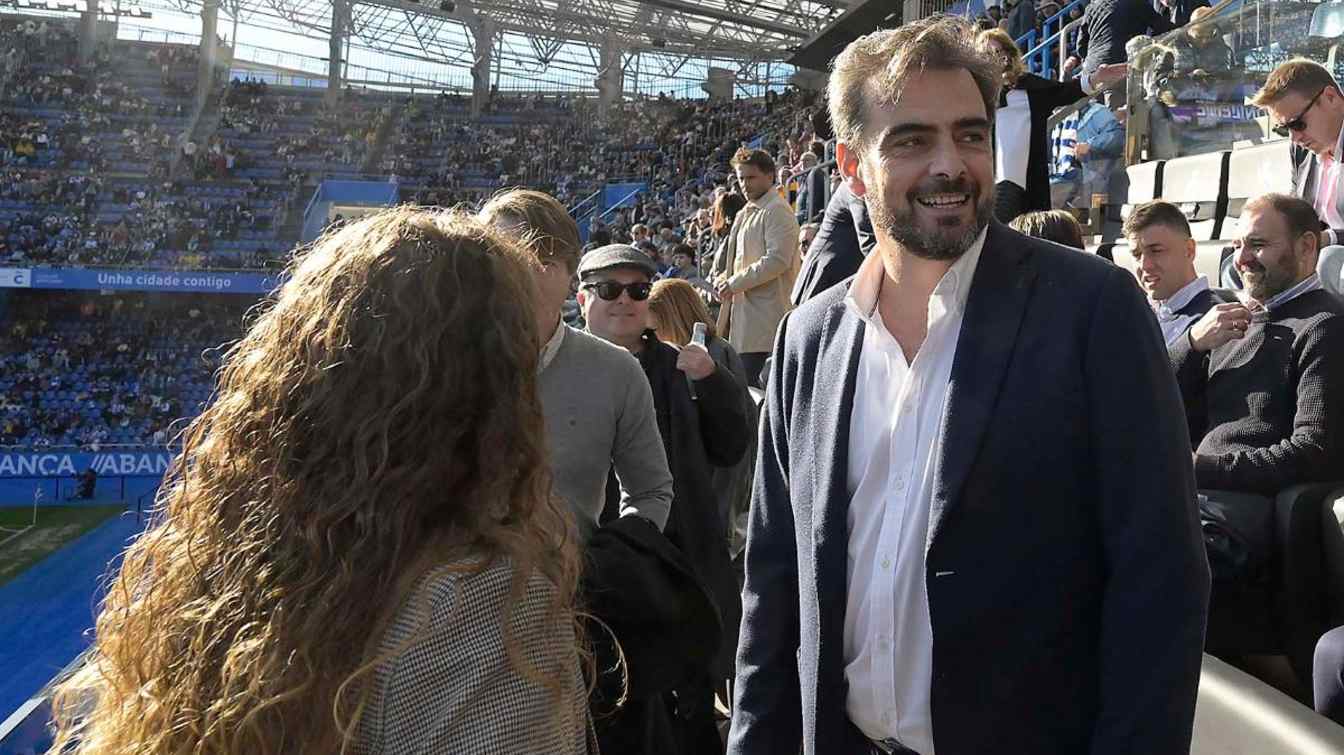World Cup 2030: Riazor project negotiations are "at a standstill"
source: StadiumDB.com; author: Miguel Ciołczyk Garcia
 The vice president of the Galician government admits that he doesn’t know neither the final cost of the project nor the situation of the private investment, essential for the expansion of Riazor. However, the City Council promises to be making progress and assures that the final project will be ready "in the summer".
The vice president of the Galician government admits that he doesn’t know neither the final cost of the project nor the situation of the private investment, essential for the expansion of Riazor. However, the City Council promises to be making progress and assures that the final project will be ready "in the summer".
Advertisement
The project, in summer
Last Tuesday SER interviewed Gonzalo Castro, councillor in the City Council of A Coruña, responsible for the project of Riazor for the 2030 World Cup. The councillor presented the latest novelty in the works: the City Council is thinking of setting up 2,000 or 3,000 temporary seats for the tournament, with the aim of removing them at the end of the World Cup and leaving Riazor with no more than 40,000 seats.
This proposal could mean another change in the project, as a few months ago the initial capacity was lowered from 48,000 fans to 42,000. In January, Castro also said that they were thinking about asymmetrical stands to make an Anfield-style
Riazor. Despite the changes, he assures that in the summer we should have the private financing and the stadium project ready.
Castro also made it clear that the City Council is negotiating both with the private investor and the public ones: the Xunta (Galician government), the Spanish Government and the Diputación. That process needs discretion,
he said. He was also satisfied with the relations with the club, claiming to have the perception that Deportivo has begun to understand how beneficial the project can be for the club.
However, according to SER, the club denies that there is any progress. The board has not yet received the final project and the deadlines, and is wary of the benefits promised by the mayoress.
 © Concello A Coruña | Deportivo, which has an average attendance of 23,000 fans, fears a half-empty Riazor after the renovation. It is also opposed to moving for the duration of the work.
© Concello A Coruña | Deportivo, which has an average attendance of 23,000 fans, fears a half-empty Riazor after the renovation. It is also opposed to moving for the duration of the work.
The Xunta knows nothing
The Xunta has also denied any progress. Diego Calvo, vice president of the Galician government, said in the interview with the Faro de Vigo, published this Saturday, that the negotiations are at a standstill.
We don't know if the private partner exists, if it doesn't exist or who it is,
he revealed.
As for the financing, he maintains that the Xunta can contribute with up to 15 million euros, meaning 25% of the budget from public funds. The four administrations (City Council, Diputación, Xunta and CSD - the Supreme Council of Sports) were to provide 70% of the 80 million initially planned.
However, there is now talk of up to 110 million euros, and the CSD has made it clear that it cannot help the venues financially. That's what they put in the press. We don't know because we are not aware of it, we don't have any more information,
says Calvo.
 © Xunta de Galicia | Diego Calvo believes that it makes no sense for the CSD not to participate financially in the World Cup. In the photo, he attends a match in Riazor.
© Xunta de Galicia | Diego Calvo believes that it makes no sense for the CSD not to participate financially in the World Cup. In the photo, he attends a match in Riazor.
Riazor is lagging behind
The lack of progress of the Riazor project should be of concern in Galicia. Of the 11 Spanish stadiums chosen for the 2030 World Cup five need hardly any changes (Santiago Bernabéu, Metropolitano, RCDE Stadium, San Mamés and Anoeta), three are already under construction (Camp Nou, La Cartuja and La Romareda) and one - Estadio Gran Canaria - already has its final project ready.
Only La Rosaleda is as far behind as Riazor. Both venues have neither budget nor schedules ready, and their projects are not yet final. Vigo and Valencia are watching their situation closely, ready to take their place when serious problems arise.
Advertisement
 StadiumDB
StadiumDB